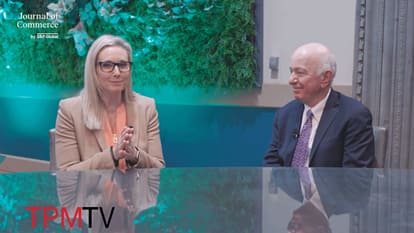- Program
- What's New
- Speakers
- Who's Attending
- TPM Community
- Partners

TPM Partnership
Partnership places your company in a position of authority and enables you to build and strengthen your relationships, visibility and reputation with major shippers
LEARN MORE - Media

TPM TV
Episodes of exclusive TPM content featuring interviews of key stakeholders and attendees.
WATCH NOW - About

About TPM
The must-attend conference for the trans-Pacific and global container shipping and logistics community
LEARN ABOUT TPM - Get Updates
- FAQ's
- TPM25 | March 2-5, 2025
- TPM25
- March 2-5, 2025 | Long Beach Convention Center
WHO'S ATTENDING TPM24? See the companies attending
TPM INSIGHTS- Supply chain market insights and analysis
TPM24- The premier global ocean container supply chain conference
{
"dots": false,
"autoplay": true,
"autoplaySpeed": 8000
}
